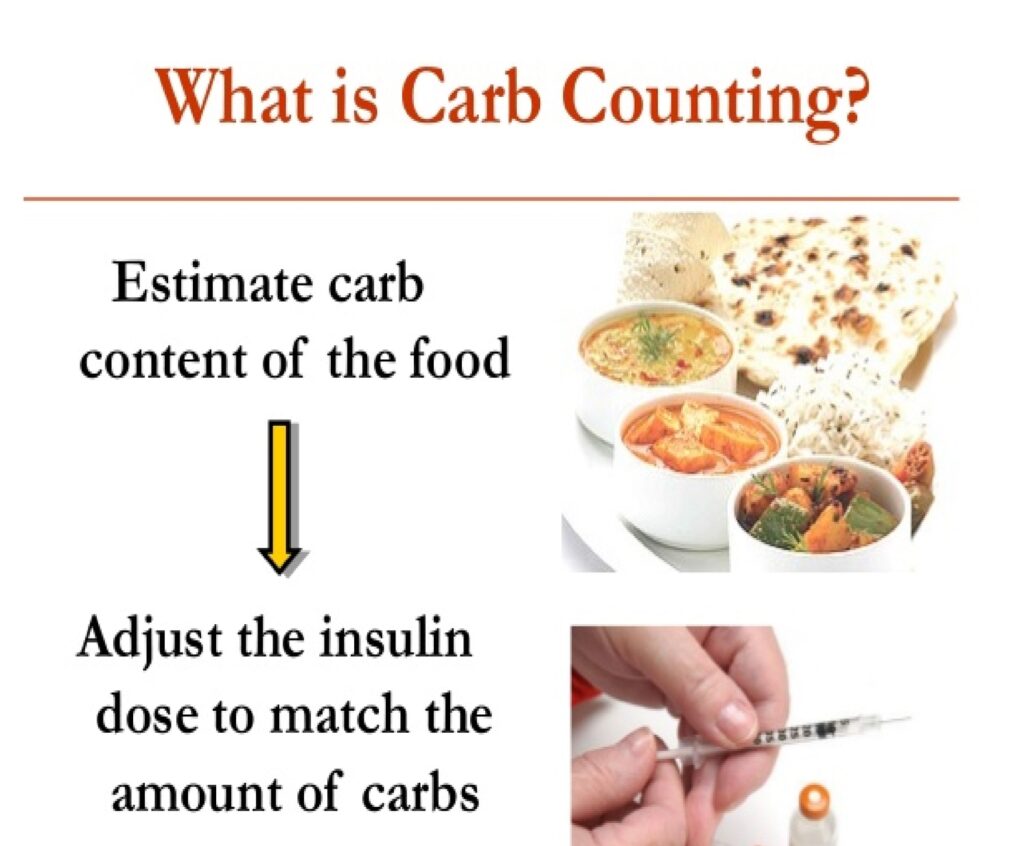Do you know why do we count carbohydrate in Diabetes? Carbohydrate counting is the amount of carbohydrate intake in our body in units which provides energy to the body and also increases the blood sugar levels. It is usually counted to monitor the diet, meal intake to regulate the sugar control.
If you take insulin, carbohydrates counting can help you know how much insulin is needed. Not all people suffering from diabetes need to count carbohydrates. Carbohydrate counting is usually counted in grams. Let us first understand which foods are rich in carbohydrates. Some of the carbohydrate rich foods include milk and milk products, rice, starchy substances, sugars, sweets, fruits, processed foods and juices, refined grains, carbonated aerated drinks. One must avoid such substances or keep control over eating habits of carbohydrates.
If you take insulin during your meal time then one needs to monitor the carbohydrate intake so that it doesn’t increase your sugar levels and also one can judge the amount of insulin required for the body.
Advantages of carbohydrates counting in Diabetes:
- It helps in improving the lifestyle.
- Improves your activity and prevents sluggishness.
- It prevents or delays the complications of Diabetes like Diabetic Nephropathy, Neuropathy, retinopathy, obesity, cardiovascular diseases, hypertension etc.
One carb serving gives 15 grams of carbohydrates. Every body needs different amounts of carbohydrates. If you have 2 baked potatoes, it gives 2 carb servings with total of 30 grams of carbohydrates. Also the amount of carbohydrates needed by the body depends upon various factors like age, weight, activity of the individual etc. A person usually takes 1800 to 1900 calories/day , out of which 900 to 1000 calories consists of carbohydrates as indian’s eat more of carbs. If 4 calories/gram of carb then 225-250 grams of carbs per day. One needs to avoid fried oily fatty foods, starchy substances to control body weight and maintain blood sugar levels. Try to eat same amount of carbohydrates every day to maintain a stable blood sugar level.
Carbohydrate serving 15 grams meal plan:
Starch: 1 slice of bread, 1/4 cup of pasta, 3/4 cup cereals
Milk: one cup of skimmed milk or 3/4 cup curd
Fruit: One small piece of fruit or 1/2 cup of fruit juice
Desert: 2 small buiscuits or 1/2 cup ice cream.
Tools that can be useful to patients as they become familiar with carbohydrate counting include measuring cups and spoons, food package labels, food scales, carbohydrate counting books.
Advanced Carbohydrate Counting:
However the following skills are required for people who have understood basic carbohydrate counting and wish to learn more advanced carbohydrate counting level (e.g., if a patient is planning to use an insulin pump or a bolus insulin regimen).
- Ability to count all aspects of basic carbohydrate counting.
- Understanding the concept of target blood glucose levels.
- Understanding the concept of action of insulin and the basal-bolus insulin.
- Willingness and ability to keep complete proper records.
- Willingness to do pattern management.
Additionally one needs to know how to calculate a bolus insulin dose using insulin-to-carbohydrate ratios, insulin sensitivity factor for correction or supplementation of insulin doses when glucose levels are either too high or too low before meals, and how to make corrections for such special situations.
There are various ways and methods for determining insulin-to-carbohydrate ratios. For patients with type 1 diabetes, the general rule is that most people need about half of their total daily dose of insulin for basal insulin and half for their bolus doses to cover their meals. In type 2 diabetes, the basal and bolus demands can vary from patient to patient. Bolus insulin doses is calculated from the insulin-to-carbohydrate ratio which is based on the total grams of carbohydrate or the total number of 15gm carbohydrate servings consumed.
How to determine insulin carbohydrate ratio:
- First record the total amount of carbohydrate intake during meals and snacks for 3 days. It will vary as per the activity and demand of the person.
- Note down the blood glucose levels for 3 days.
- Calculate the average intake of carbohydrates of 3 days and average of blood glucose levels. Then one can determine the amount of insulin required for that average blood glucose levels.
- Then one can calculate the ratio of insulin carbohydrate ratio by dividing the number of grams of carbohydrate in a meal by number of bolus insulin given in units.
Hope our readers understood the simple way of calculating carbohydrate in your meal and plan your meal accordingly. Also the importance of monitoring carbohydrates in regulating the blood glucose levels and also manage the intake of insulin injections accordingly. One also needs to consult your diabetologist for proper guidance for calculating carbohydrate intake and insulin dose regulation.



